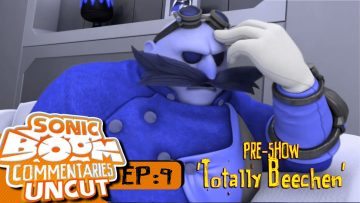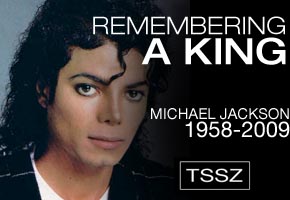
The King of Pop's Contribution to Gaming
Its generational impact is already being compared to the death of Elvis Presley, or the assassination of John F. Kennedy. The world of millions from New York to Los Angeles, to Japan and Europe–and everywhere in between–has stopped, at least temporarily, to reflect on the sudden and shocking death of the King of Pop, Michael Jackson.
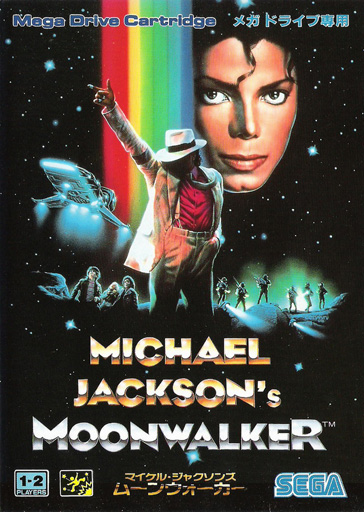
No matter your perceptions on his personal life and misfortunes, Jackson was, for many, music. From his Motown work as a child with the Jackson 5, to his emergence as a superstar in the 1980s with such hits as Billie Jean, Thriller, and Bad, and his continued dominance as an entertainment icon in the 1990s, to hopes of a revival with a planned London concert residency this Summer, the work of Jackson broke color barriers in America, bridged several generations, and closed some generational gaps.
But Michael Jackson didn’t just use music to build an entertainment empire. In both the distant and recent past, he allegedly had caught the attention of some of Sega’s best and brightest.
The Sega relationship began–and was most overt–in 1990, when Michael Jackson’s Moonwalker was first released to arcades on the System 18 board, and then to the Master System, Genesis/Mega Drive and the portable Game Gear. Though the arcade edition was more reminiscent of the fighting genre prevalent in arcades at the time, the home console version had a different focus–a platforming focus. Versions of the game were also released on other fading consoles, including the Commodore 64, with Sega lacking involvement in those ports. But all of them feature Jackson’s signature moves in sprite form, as well as synthesized editions of his blockbuster songs at the time.
Here’s how video game enthusiast site Killer List of Video Games described the basic gameplay of Moonwalker:
Michael has to rescue the children, kidnapped by Mr. BIG, using Bubbles the chimp and his moonwalking and dancing (smartbomb) skills. The game’s soundtrack features hits such as “Bad”, “Smooth Criminal” and “Beat It”.
[….]
During each round, Michael must fight off each and every one of Mr. BIG’s henchmen as well as the deadly enemy machines by shooting them with his magical energy or by using his Dance Magic. Some enemies take only one shot to defeat but some of them take several shots to destroy. The longer you hold down on the fire button, the greater the amount of energy Michael can shoot. If Michael uses his Dance Magic, all the enemies on the screen will dance along with him and then they will all be eliminated. However, you are usually only given two Dance Magics at a time.
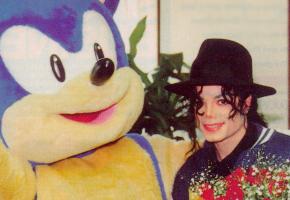
Recent evidence has surfaced that Jackson was quite the gamer in his spare time. A recent auction of his personal belongings included several arcade cabinets he owned, and store kiosks of home consoles–one of which included the Sega Dreamcast. Jackson also made a cameo in the original Space Channel 5 for the Dreamcast, and appeared in a more prominent role as Space Michael in the game’s sequel, Space Channel 5 Part 2, which was released both on Dreamcast and the PlayStation 2.
But what is perhaps of most pertinent interest to Sonic fandom is Michael Jackson’s rumored and not yet totally confirmed involvement with the soundtrack of the classic Sonic the Hedgehog 3. Research continues to be attempted in the interest of answering, once and for all, the question of whether Jackson had a hand in the game’s tunes. You can see here in this photo that Jackson was quite a fan of the hedgehog.
But it was late in the development of Sonic 3 that Jackson endured the first round of allegations of child sex abuse. Whereas he beat a second round of charges in 2005 before entering near seclusion, these initial allegations in the 90s were settled for millions of dollars.
Those inside Sega today are not talking about it. But the Sonic research community has been at the forefront of laying the issue to rest. The Sonic Retro wiki has a detailed article on the issue, and it includes an excerpt from an interview conducted in 2005 with former Sega Technical Institute head Roger Hector. He oversaw the development of Sonic 3, and claims Jackson was originally commissioned for the game’s soundtrack:
In September of 2005, an interview was conducted by HXC with Roger Hector, the Executive Coordinator for Sonic the Hedgehog 3 and General Manager of the SEGA Technical Institute for a number of years. In this interview, Hector reveals some information about Jackson’s involvement in composing the game’s soundtrack. When asked about his favorite project:
Sonic 3 (also called Sonic & Knuckles) was a lot of fun, but it was also very difficult. Michael Jackson was originally brought in to compose all the music for the game, but at the very end, his work was dropped after his scandals became public. This caused a lot of problems and required a lot of reworking. But the game turned out great in the end.
This statement reveals that a soundtrack was indeed composed by Jackson for Sonic 3, but, according to Hector, was dropped from the game (whether complete or not at the time) due to his child molestation allegations. Before this interview, there was little thought of Jackson being involved in Sonic 3, but after, more information was revealed about Sega’s plan with Jackson to compose the game’s music.
Howard Drossin, a composer for a number of Sega games, would complete the soundtrack that is now used in Sonic 3. Brad Buxer, Doug Grisby III, Bobby Brooks, Darryl Ross and Geoff Grace also lent their work to Sonic 3‘s soundtrack. Interestingly, these same people have also worked with Michael Jackson at some point in their careers.
If Jackson did indeed work on Sonic 3, it appears the work was not completely removed. Many in the Sonic research community are quick to point out striking similarities between Jackson’s hits and music within the game. Some of the most glaring examples include similarities between the game’s original ending credits and Jackson’s Stranger in Moscow, as well as the beat in Sonic 3’s Ice Cap Zone Act 1, and two of Jackson’s works: Who is It and Smooth Criminal.
Though Jackson’s personal problems have seemingly forced many to push both proven and theorized connections aside, Michael Jackson’s ties with Sega will remain a critical component of the company’s long term success. What appears to be a short term relationship during the early 1990s, and perhaps Jackson’s love for Sonic, may have laid the foundation for a flourishing mascot to be a player in gaming, both then and now.



![Private: [ID: VgiJ7prW9dM] Youtube Automatic](https://lastminutecontinue.com/wp-content/uploads/2021/11/private-id-vgij7prw9dm-youtube-a-360x203.jpg)
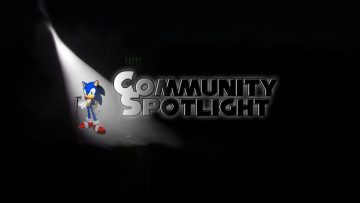
![Private: [ID: LJtcyBE9CFI] Youtube Automatic](https://lastminutecontinue.com/wp-content/uploads/2020/06/private-id-ljtcybe9cfi-youtube-a-360x203.jpg)
